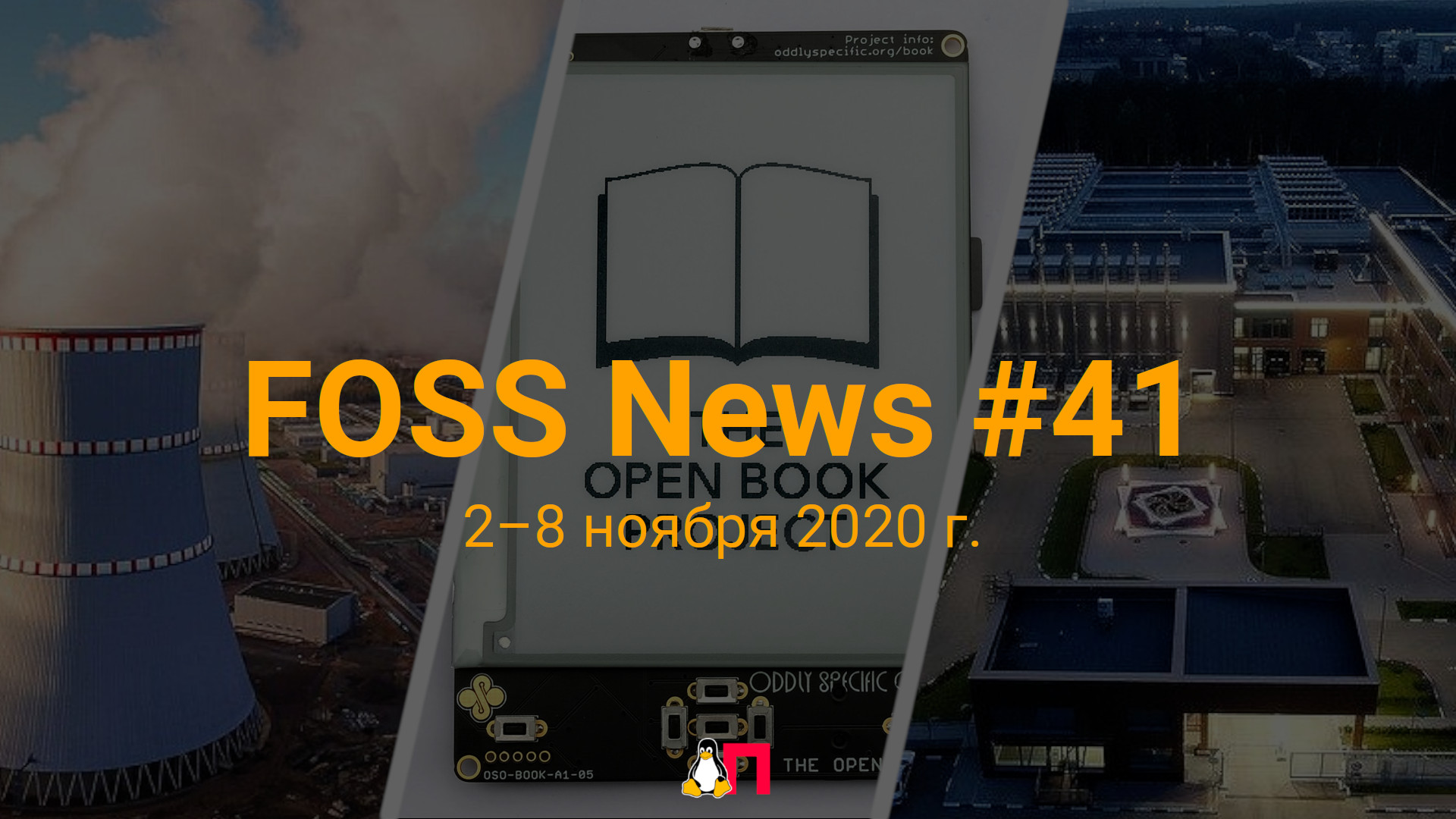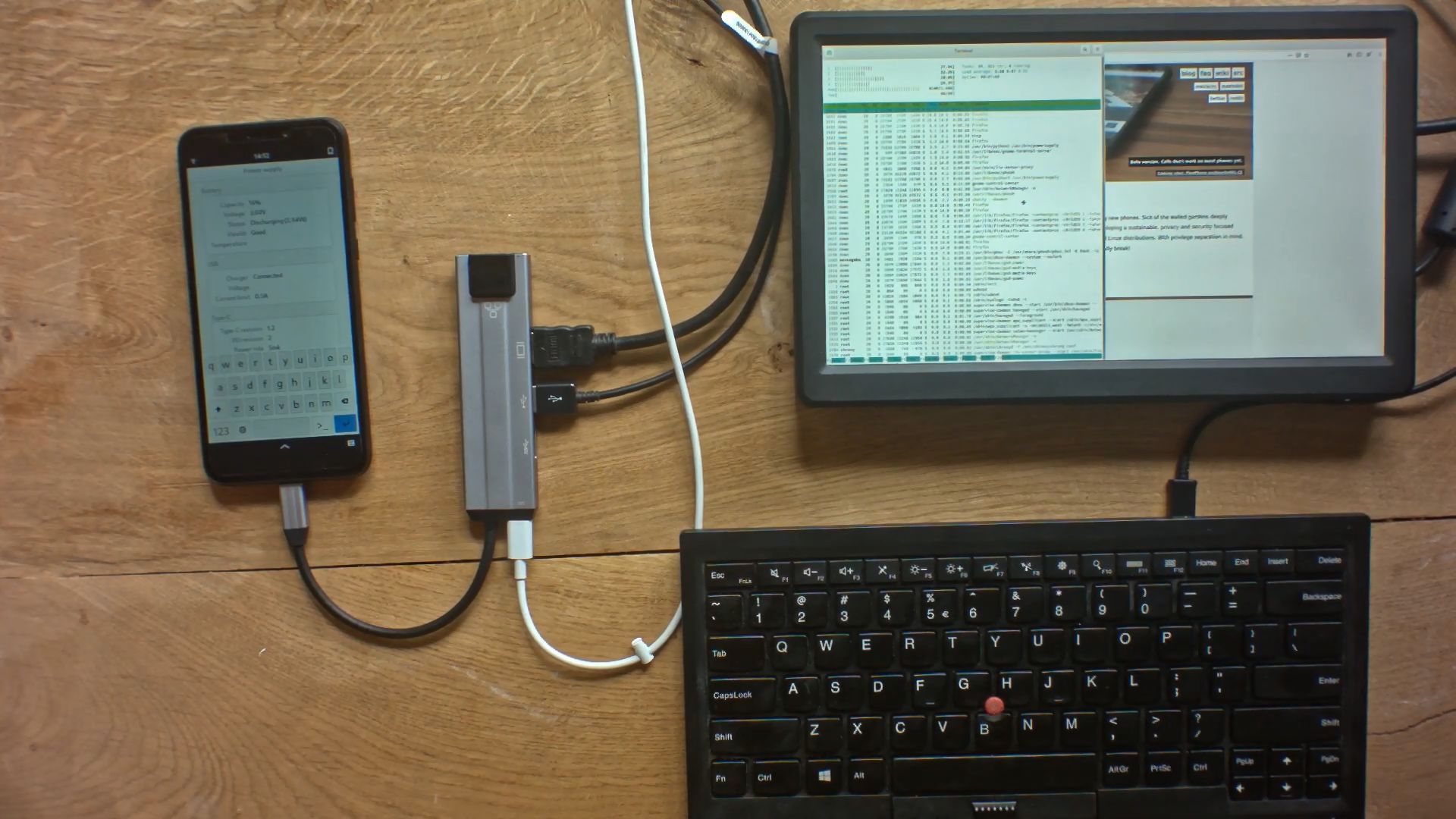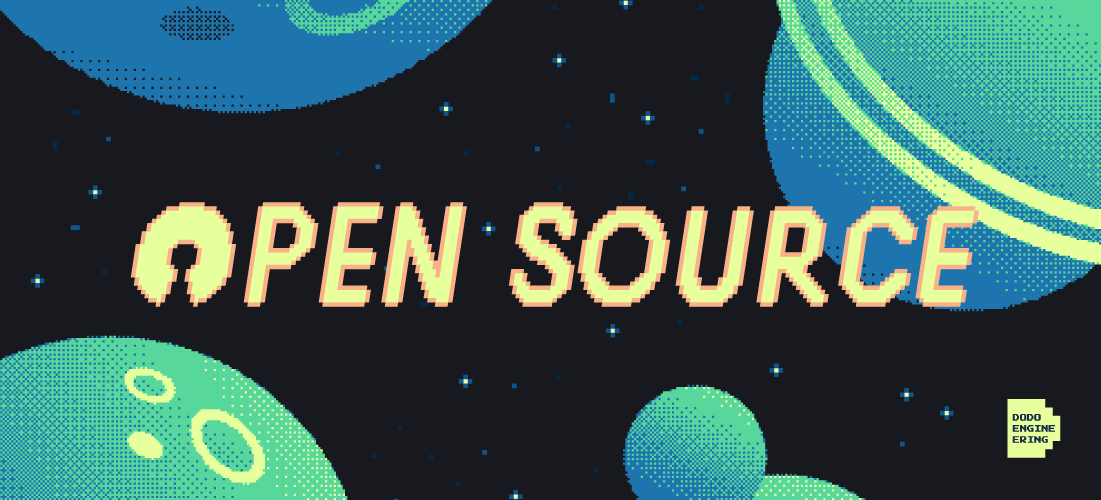
Hello!
We continue to digest news and other materials about free and open source software and a little about hardware. The most important thing about penguins and not only, in Russia and the world. MTC will launch cloud infrastructure based on Ubuntu and OpenStack; Rosatom will spend 820 million rubles. for the implementation of Astra Linux; Open Book - a project for assembling a free eReader with a soldering iron in hand; Richard Stallman and the Future of Software Innovation; smartphone as a system unit, why not; a short history of Ubuntu Touch; Open Source history in brief from calculator to billion dollar deals and more.
Table of contents
- the main thing
- MTC will launch cloud infrastructure based on Ubuntu and OpenStack
- Rosatom will spend 820 million rubles. for the implementation of Astra Linux
- Open Book: a project to build a free eReader with a soldering iron in hand
- Richard Stallman and the future of software innovation
- , ?
- Ubuntu Touch
- Open Source :
-
-
- FOSS
- Web
-
- DIY
- DevOps
- Web
-
- DevOps
- Web
-
MTC Ubuntu OpenStack

OpenNET writes: “ Canonical has announced a partnership with mobile operator MTC to build a next-generation cloud infrastructure that will be deployed on the OpenStack open platform and Linux distribution Ubuntu. They plan to start implementing the new infrastructure next year in 11 Russian data centers of MTS and use it to create services for the 5G network. The OpenStack platform includes a set of interconnected components aimed at creating both public cloud services like Amazon EC2 and private cloud environments that run on their own hardware and are fully controlled by the company . "
Details ( 1 , 2 (en) , 3 , 4 )
Rosatom will spend 820 million rubles. for the implementation of Astra Linux

CNews writes: “ Rosatom” in a very exotic organizational form is purchasing Astra Linux OS with technical support for a total amount of 820 million rubles. The very fact that a serious state corporation can switch from Microsoft software to Russian software in the IT industry is perceived as proof that critical infrastructure facilities do not need a three-year delay from the Ministry of Digital Industry for software import substitution . "
Details
Past important news related to Astra Linux:
- Astra Linux group of companies intends to invest 3 billion rubles. to the Linux ecosystem
- The Ministry of Internal Affairs carried out the largest purchase of Astra Linux OS
Open Book: a project to build a free eReader with a soldering iron in hand

The Selectel company in its blog on Habré writes: “ The developer Joey Castillo, the author of the Open Book project, presented a set of elements, including hardware and software, from which you can assemble an e-book for yourself. All these elements, both software and components, are allowed to be modified for any purpose, since they are distributed under a free license. The developer raised funds, which were enough for him to order 100 printed circuit boards. The Adafruit team took over the production of these boards, and after they were ready, they began to sell them at Digi-Key. The cost of the board is about $ 15, it comes with instructions for assembling an e-book - you can't do just a screwdriver, you need a soldering iron and at least a minimum soldering skill . "
Details
Richard Stallman and the future of software innovation

Near, in its blog on Habré, published a translation of an article by the author Aliaksandr Hudzilin, which raises the problem of the closed nature not only of the code of many modern web services, but also of user data on them. In particular, this leads to the fact that even what the user buys continues to belong to the service, and the client is only provided with a kind of rent. The author believes that it is necessary to continue the work of Richard Stallman in the new realities and gives an example of how the proposed approach can be used: “For example, I share my OpenAmazon purchases with OpenNike.com and thus allow OpenNike.com to customize my shoe shopping experience based on the past shoe purchase history that is available on OpenAmazon. In such a world, I own the data, not the corporation I work with. I provide access to data in exchange for a differentiated user experience. This is my decision, not the corporation . "
Details
Smartphone as a system unit, why not?

The VDSina company in its blog on Habré writes: “ Modern smartphones in terms of CPU and RAM are almost equal to desktop computers and laptops: 8 GB of RAM and a 512 gigabyte flash drive are not uncommon. For example, the latest iPhone has a 6-core CPU and a 4-core GPU, and the CPU is made using a 5nm process technology. Nowadays, no desktop CPU is manufactured using this technology. That is, we have reached the point that technological progress first serves smartphones, then laptops, and desktops last. The question arises, why not use a smartphone as a system unit? ". Answering the question posed, examples of configurations that implement such an idea are given.
Details
A short history of Ubuntu Touch

Continuing the topic of smartphones - an article on It's FOSS that tells the difficult story of a very interesting project, Ubuntu Touch: “ The Ubuntu Touch project began with a blog post by Canonical founder Mark Shuttleworth. A blog post on October 31, 2011 began with a bold prediction: “By 14.04 LTS, Ubuntu will run on tablets, phones, TVs and smart screens from the car to the office kitchen, and connect these devices cleanly and seamlessly to desktops. , servers and clouds ". And although the large-scale plans were not destined to come true (maybe the time has not yet come), the life of the project continues.
Details (en)
Open Source history in brief: from calculator to billion dollar deals

Dodo Engineering writes in his blog on Habré: “When they say “Open Source,” the first associations are usually Richard Stallman and Linus Torvalds. But Open Source didn't start with them. When in the 50s scientists and engineers wrote software, for example, for the IBM 701, they exchanged the results of their labor for free and worked on improving the programs of their colleagues. Then there was no proprietary (closed) software yet, but there were already Open Source projects. This was long before Stallman and Torvalds. There have been many interesting things in the history of Open Source: programs for the "Defense Calculator", the commercialization of UNIX, the letter from Bill Gates, the GNU manifesto, Linux and billions of dollars in purchases of Open Source companies. We tried to understand history and find out how Open Source began, what events contributed to its development and why without Open Source IT would not be what it is . "
Details
FOSS
- Wayland [→]
- Linux Mint Chromium [→ 1, 2]
- Canonical etrace LZO snap [→]
- Fedora SCP [→]
- ALT Linux [→]
- Linux Open Source [→ (en)]
- dahliaOS Linux Fuchsia [→ 1, 2]
- Bcachefs , Linux [→]
- openGauss: Huawei enterprise- [→]
- Zink, OpenGL API Vulkan [→]
- GitHub GitHub Enterprise () [→ 1, 2]
- GitHub Actions, [→]
- NPM twilio-npm [→]
- GitHub, - SSL- [→]
- root- Solaris [→]
- GitHub , [→]
- Local vulnerability in SDDM display manager [→]
- Vulnerability in tmux exploited by escape sequence [→]
- Dell will add support for privacy buttons for its laptops [→ 1 , 2 (en) ]
- Let's Encrypt certificates will no longer be accepted on 33% of Android devices [→]
- Port of RansomEXX ransomware for Linux detected [→]
Web
Chrome plans to add its own root certificate store [→]
Custom
KDE has a new system monitor [→]
Iron
- Librem Mini v2 Mini PC is now on sale [→]
- Raspberry Pi 400, [→ 1, 2, 3, 4 (en)]
- Pro1 X: Ubuntu Touch, Android Lineage OS [→]
- SiFive Linux RISC-V [→]
DIY
- «»: c [→]
- PRS-505 [→]
- () MQTT IoT [→]
- Menuet [→]
- 11 Linux 32- [→ (en)]
- Shrinking qcow2 image in Libvirt KVM [→]
- Processor frequency in Linux [→]
Special
- Comparison of 3 free solutions for product information management (PIM systems) [→]
- Zabbix + Wirenboard: production monitoring [→]
- New "web" Open Source approach to the preparation of scientific publications [→ (en)]
Safety
5 ways to determine if a program is trustworthy [→ (en)]
DevOps
- Unraveling Ansible Loops [→]
- Advanced Kubernetes abstractions: Job, CronJob [→]
- GitOps - Bad and Ugly [→]
- Docker swarm and node load balancing [→]
- What is GitOps? Its properties and disadvantages [→]
- Zabbix under lock and key: enable security options for Zabbix components for access from inside and outside [→]
- Backup and Disaster Recovery with Zextras Backup [→]
- Monitoring Kubernetes with Prometheus and Thanos [→]
- How not to oversleep problems in Postgres databases. Nikolay Samokhvalov (Postgres.ai) [→]
- DevOps Automation [→]
- 4 ways to run Kubernetes locally [→ (en)]
- How Kubernetes Scheduler Works [→ (en)]
- How to build a highly qualified team for working with cloud technologies [→ (en)]
Web
Reasons for the popularity of the Vivaldi browser in the Linux environment [→]
For developers
- , SQLite [→]
- - : CI/CD [→]
- 25 GitHub Python [→]
- SRFI-216: SICP. ? [→]
- epoll, 2 [→]
- TIME MySQL [→]
- KVM [→]
- JavaScript [→ (en)]
- Flutter [→ (en)]
- 4 JavaScript [→ (en)]
- Open Source viztracer Python [→ (en)]
- 5 Jupyter [→ (en)]
- Git [→ (en)]
- Linux [→]
- Linux [→]
- Spotify Ubuntu [→]
- Puppy Linux [→]
- 5 Linux 2020 [→ (en)]
- Linux ( GUI ) [→ (en)]
- GnuCash: Open Source [→ (en)]
- Linux Enlightenment: What are GUI, CLI and TUI in Linux? [→ (en)]
Games
Mythic Table allows users to share Dungeons & Dragons game cards online [→ (en)]
miscellanea
- 6 evening rituals for IT workers [→ (en)]
- When your manager is your best friend [→ (en)]
Releases
Kernel and distributions
- SystemRescue 7.00 [→]
- Ubuntu Touch Firmware Update 14 [→]
- Release of the ArchBang Linux 0111 distribution [→]
- Release of OpenIndiana 2020.10 distribution, continuing development of OpenSolaris [→]
- Red Hat Enterprise Linux 8.3 distribution is presented [→]
- Release of Linux Lite 5.2 distribution. What's new [→]
- Release of Nitrux 1.3.4 distribution with NX Desktop [→]
- Release of OmniOS CE r151036, Illumos Distribution [→]
Systemic
Release of CRIU 3.15, a system for saving and restoring the state of processes in Linux [→]
Special
- Release of the open platform of virtual reality Monado 0.4 [→]
- Release of the open billing system ABillS 0.84 [→]
- Release of VKD3D-Proton 2.0, a fork of Vkd3d with the implementation of Direct3D 12 [→]
- Wine 5.21 and Wine staging 5.21 release [→]
Multimedia
- Shotcut released on 20.10.31 [→]
- Release of the program for video editing Shotcut 20.10.31 [→]
- A new version of the video processing program Cine Encoder 3.0 has been released [→]
- Cine Encoder v3.0 video converter released [→]
- GIMP 2.99.2 [→]
DevOps
Loki 2.0 released [→]
Web
- Composer 2.0.0, a dependency manager for PHP available [→]
- New release of youtube-dl 2020.11.01.1 [→]
- Hubzilla 5.0 decentralized communication platform released [→]
For developers
Update of the CudaText code editor 1.117.0 [→]
Custom
- Release of the graphical environment LXQt 0.16.0 [→]
- Trinity R14.0.9 desktop environment released, continuing development of KDE 3.5 [→]
- Updates for the program for keeping notes CherryTree 0.99.15-18 [→]
- November KDE Applications Update 20.08.3 [→]
- IceWM 1.9.0. [→]
- Jami [→]
- Neochat — KDE- Matrix [→]
- Pentobi 18.3 [→]
- Free Heroes of Might and Magic II 0.8.3 [→]
- Linux [→ (en)]
- C# 8.0, Red Hat OpenShift Container Platform upstream-to-downstream [→]
- KDE: [→]
That's all, until next Sunday!
I express my big thanks to the editors and authors of OpenNET , a lot of news materials and messages about new releases were taken from them.
If anyone is interested in compiling digests and has the time and opportunity to help - I will be glad, write to the contacts indicated in my profile, or in private messages.
Subscribe to our Telegram channel , VKontakte group or RSS so as not to miss new issues of FOSS News.
← Previous issue